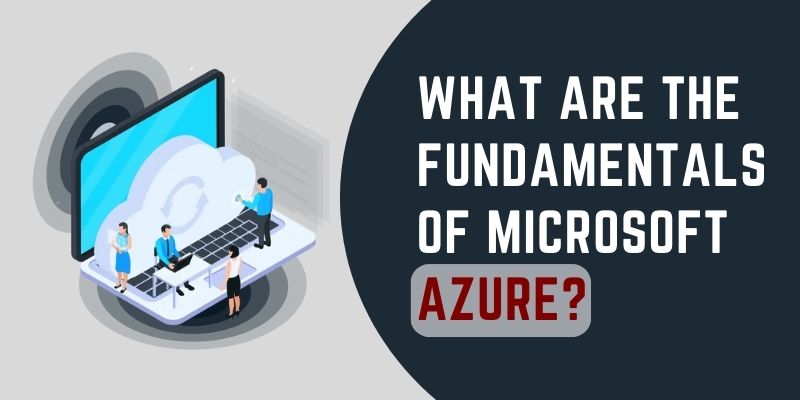Microsoft Azure is a cloud-based infrastructure that offers various cloud services to assist organizations and developers in developing, deploying, and managing applications and services. Whether you are new to cloud computing or have previous experience with other cloud providers, understanding the foundations of Microsoft Azure is critical for adequately using its potential. This blog will discuss “What are the Fundamentals of Microsoft Azure?”. To Learn Azure, join Azure Training in Chennai at FITA Academy and gain knowledge on the Fundamentals of Microsoft Azure.
1. Cloud Computing and Azure’s Role
The distribution of computing support via the Internet is called cloud computing. Servers, storage, databases, networking, software, analytics, and other services are included. Cloud computing allows businesses to access resources on-demand and pay only for their use, providing better flexibility, scalability, and cost efficiency.
2. Azure Global Infrastructure
Azure’s enormous worldwide network of data centres is one of its primary features. Microsoft maintains data centres in several regions worldwide, with multiple data centres. This worldwide presence ensures decreased latency, improved performance, and compliance with data residency regulations for enterprises operating in several areas.
3. Azure Services
Compute
Azure offers various options for running applications, including Azure Virtual Machines for custom VMs, Azure App Service for web apps, Azure Functions for serverless computing, and Azure Kubernetes Service (AKS) for container orchestration.
Storage
Azure provides scalable and durable storage options, such as Azure Blob Storage for unstructured data, Azure File Storage for fully managed file shares, Azure Table Storage for NoSQL data, and Azure Queue Storage for messaging between components.
Databases
Azure offers fully managed database services, including Azure SQL Database for relational databases, Azure Cosmos DB for NoSQL databases, Azure Database for MySQL, and Azure Database for PostgreSQL.
Networking
Azure Virtual Network (VNet) allows users to create private networks, and services like Azure Load Balancer, Azure Application Gateway, and Virtual Network Gateway facilitate network traffic management and secure connectivity.
AI and Machine Learning
Azure Cognitive Services provide APIs for vision, speech, language, and decision-making capabilities, while Azure Machine Learning allows for building, training, and deploying machine learning models.
4. Azure Resource Management
Azure Resource Manager (ARM) is the underlying management layer that enables users to create, manage, and organize Azure resources logically and consistently. With ARM, you can group related resources into resource groups, apply access control, and manage resources collectively using templates or PowerShell/CLI scripts.
5. Pricing and Billing
Azure’s pricing model is based on a pay-as-you-go system, meaning you only pay for the resources you consume. It offers various pricing options, including pay-as-you-go, reserved instances for cost savings, and free-tier services for exploration and learning. Azure’s pricing calculator and cost management tools help users estimate and optimize their cloud spending. You can join Microsoft Azure Online Training and learn every aspect of Azure.
6. Azure Security
Security is a top preference for Azure, and Microsoft invests heavily in providing a secure cloud platform. Azure follows industry best practices and compliance standards. It offers various security features such as network security groups, firewalls, encryption, identity management, and threat protection services like Azure Security Center.
7. Azure Hybrid Capabilities
Azure’s hybrid solutions allow businesses to extend their on-premises infrastructure to the cloud seamlessly. Azure Arc enables managing resources on-premises, at the edge, and in multi-cloud environments from a single control plane. Azure Hybrid Benefit permits customers to use their existing on-premises licenses to save costs on Azure services.
8. Learning and Certifications
Azure offers a wealth of learning resources for individuals and professionals, including Microsoft Learn, official documentation, and training courses. Microsoft Azure certifications validate skills and expertise, helping people stand out in the job market and demonstrate their knowledge of Azure to employers.
Understanding the fundamentals of Microsoft Azure is crucial for any organization or individual looking to embrace cloud computing and take advantage of its capabilities. Whether you are a developer, IT administrator, or business decision-maker, investing time in learning Azure’s fundamentals from Microsoft Azure Training in Chennai will undoubtedly prove beneficial in leveraging the full potential of this powerful cloud platform.
